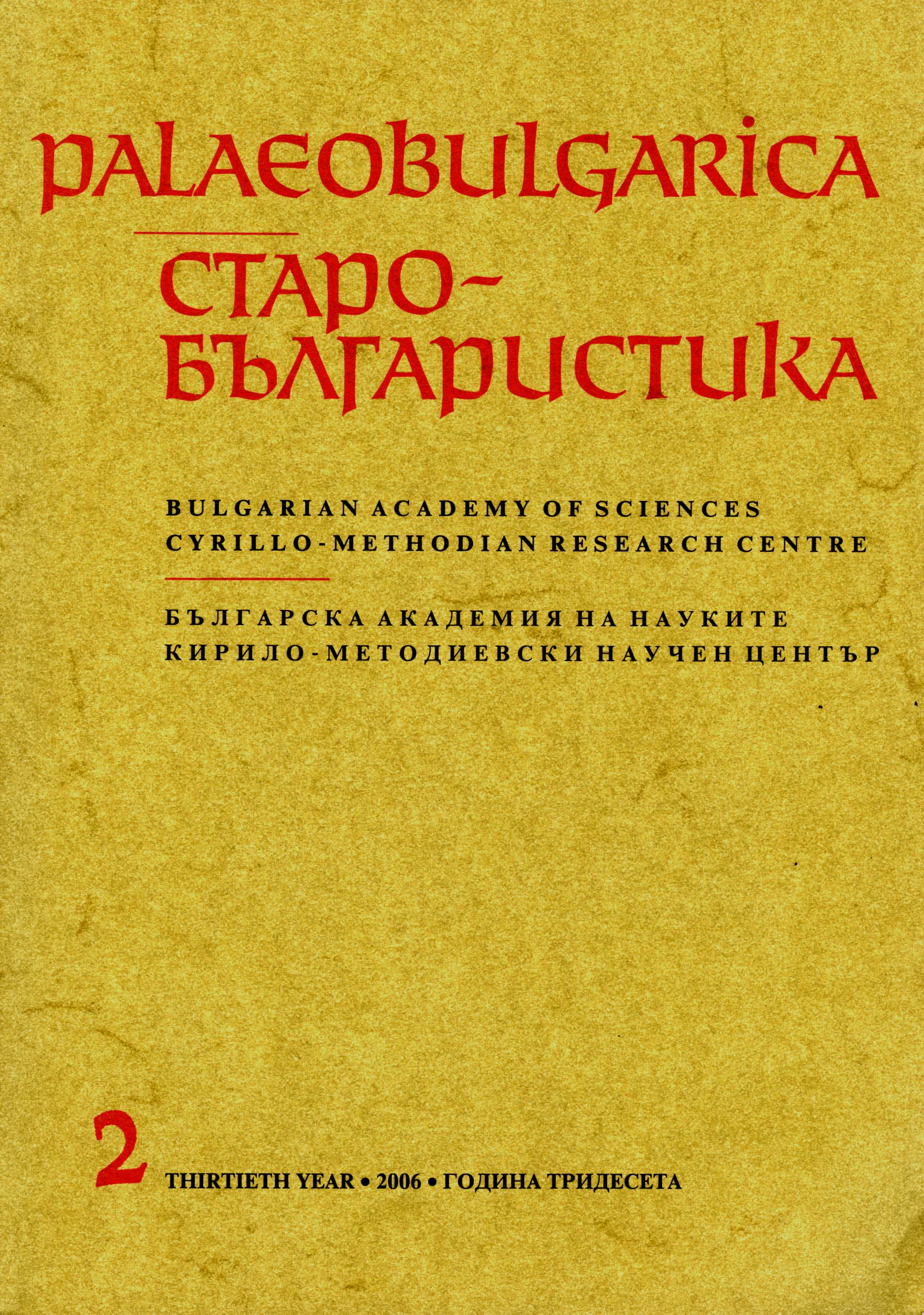Необичайни инфинитивни форми в старобългарски преводи
Unusual Infnitive Forms in Old Bulgarian Translations
Author(s): Tatyana SlavovaSubject(s): Language and Literature Studies, South Slavic Languages
Published by: Кирило-Методиевски научен център при Българска академия на науките
Summary/Abstract: The article discusses 19 instances of бъітоу infinitive occurring in three early Bulgarian translations: Είς τά θεοφάνια, εΐτουν Γενέθλια το‡ Σωτηρος (Oratio XXXVIII) in the 13 Sermons by St. Gregory the Theologian (Russian copy from the 11th c., RNB, Q.n.1.16), a text about the oecumenical councils in the Ustjug Kormčaja (Russian copy from the 13th c, RGB, f. 250, № 230) and the Gospel Homilies by Constantine of Preslav (Russian copy from the 12th c., GIM, Sin. 262; Serbian copy from the 13th c., Vienna National Library, Cod. Slav. 12). The бъітоу infinitives are seen as archaic forms, typical of the Old Bulgarian protographs of these works (but not of their copies) as well as of the early literary practice of Cyril and Methodius. Because бъітоу infinitives are used only after verbs expressing speech and mental activity (verba sentiendi мьнѣти сѧ and verba declarandi глаголати сѧ, рещи, изложити, излагати, прѣпьрѣти) it is argued that the suffix -тоу (unlike - ти) was used to express the non-final (without the meaning of purpose) character of the infinitive. This suffix derives from the proto-Slavonic Locative or Genitive singular of the *-й-declination.
Journal: PALAEOBULGARICA / СТАРОБЪЛГАРИСТИКА
- Issue Year: 2006
- Issue No: 2
- Page Range: 52-61
- Page Count: 10
- Language: Bulgarian

